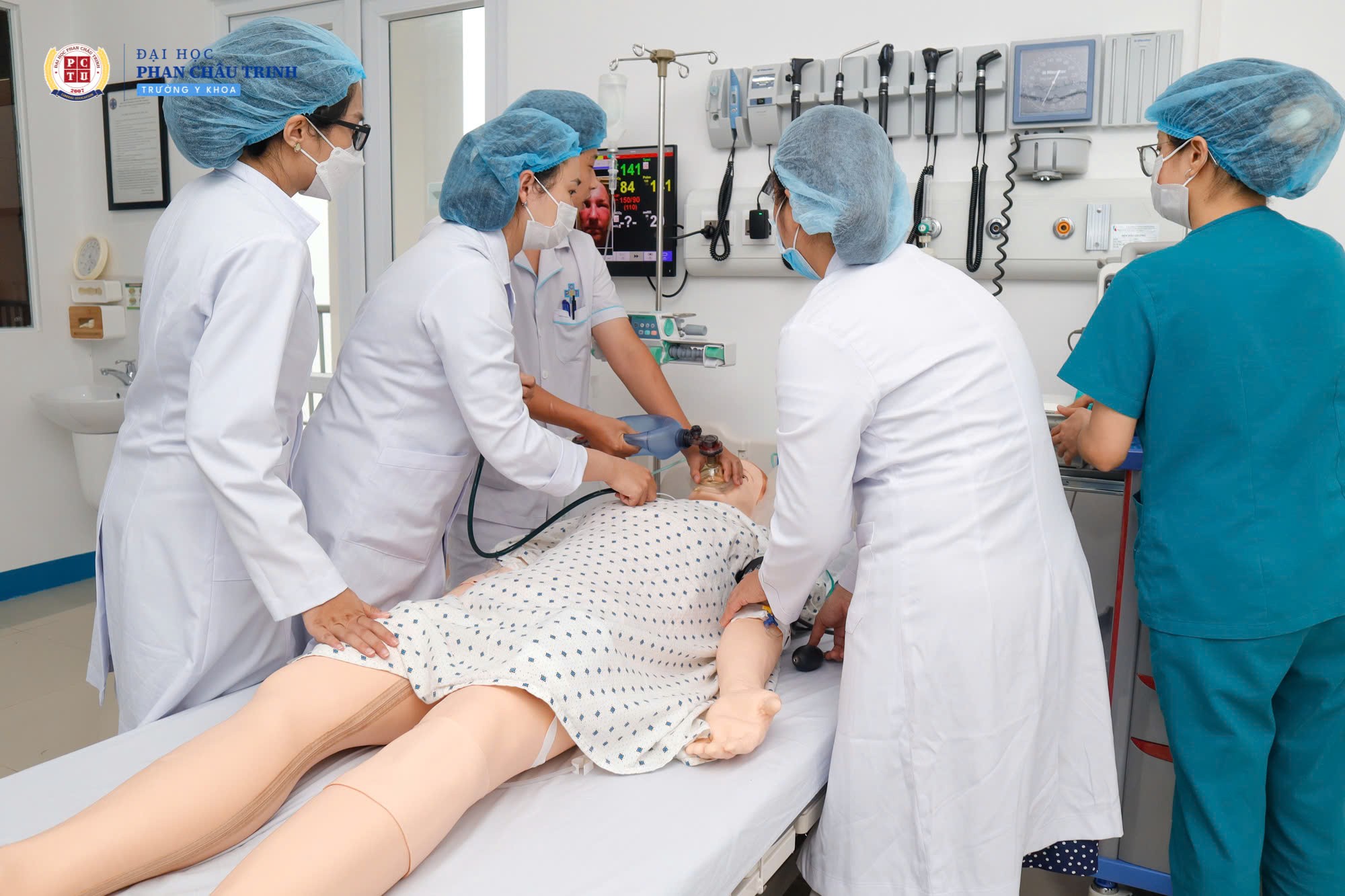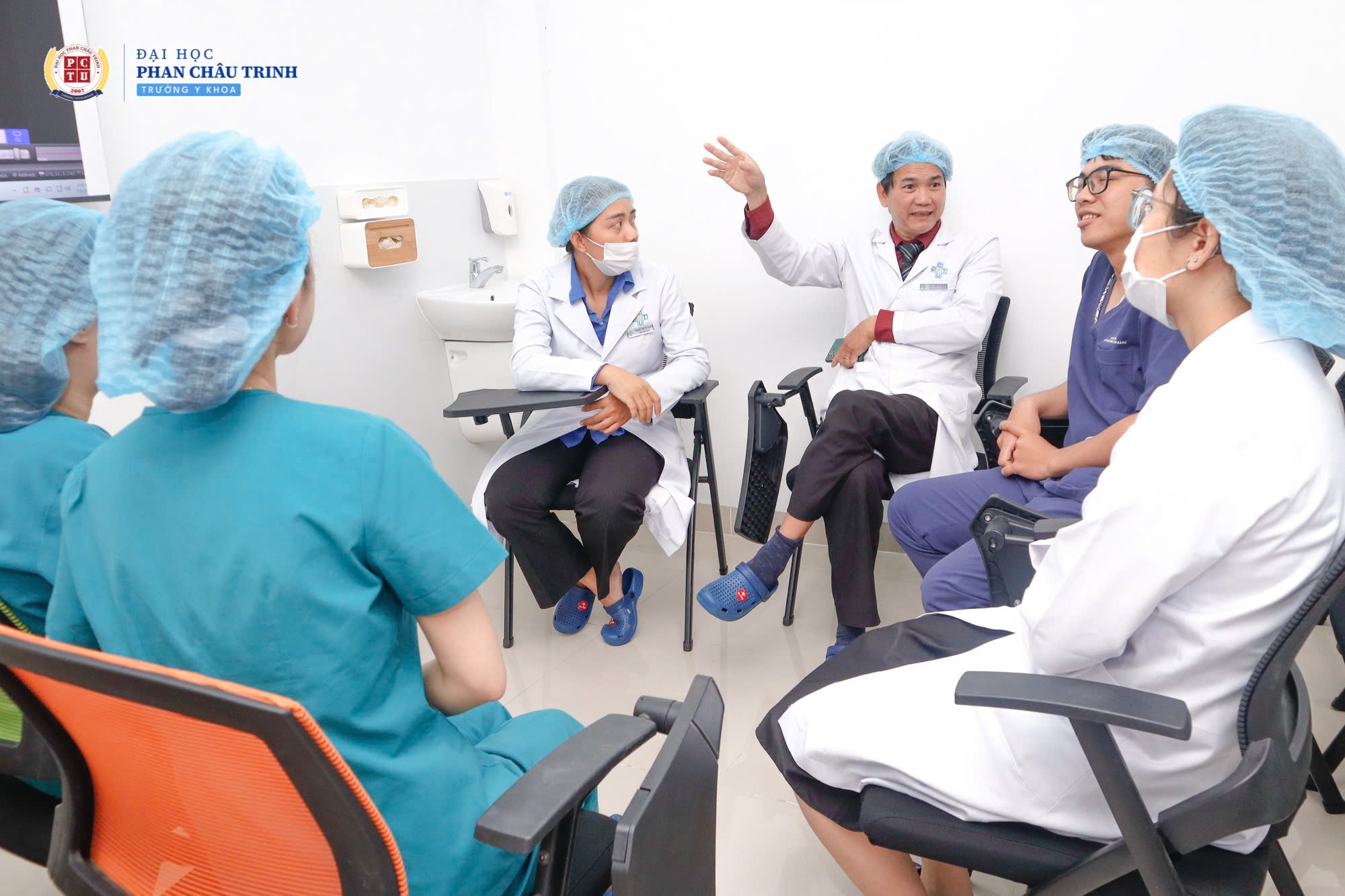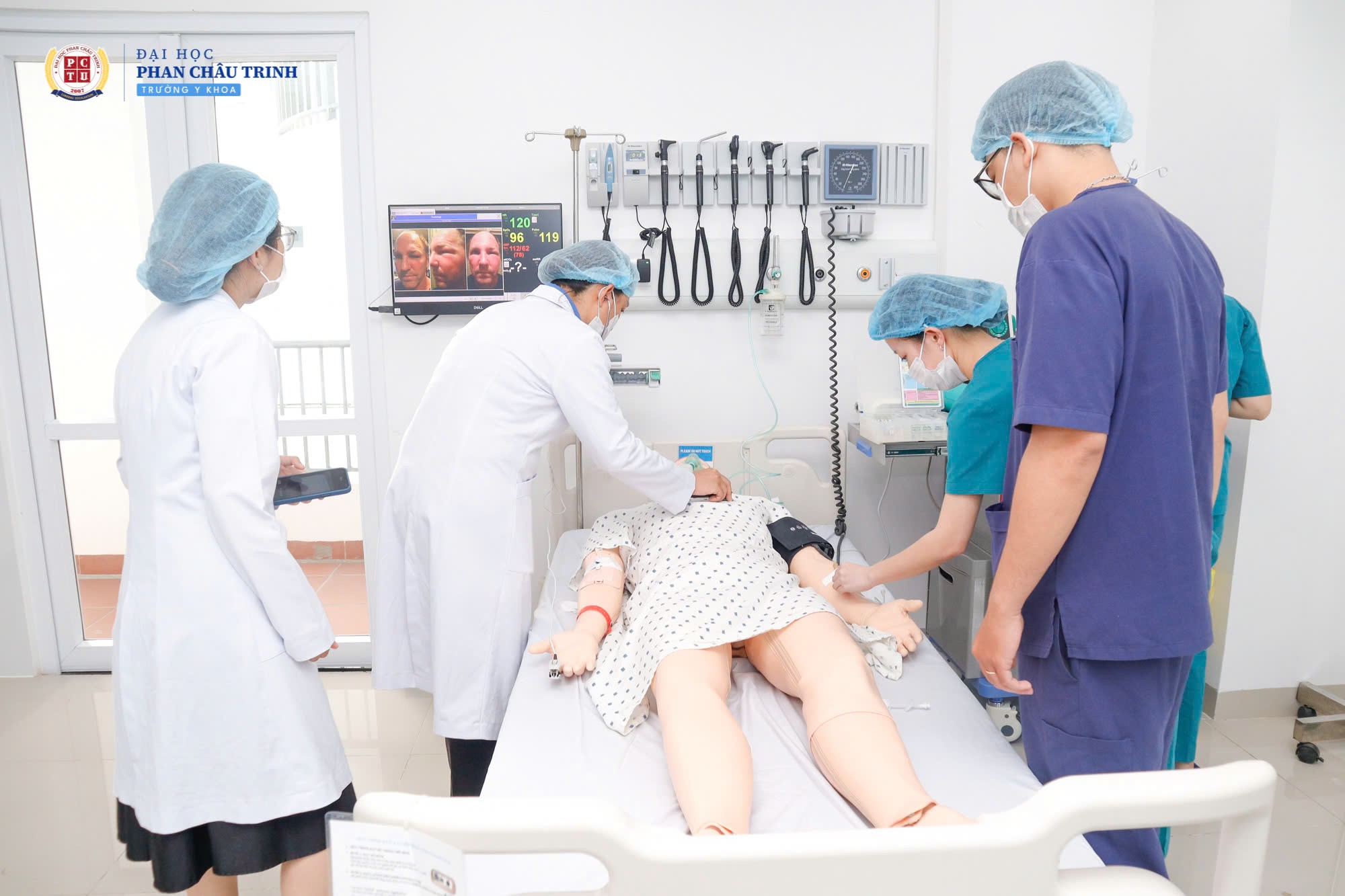Contact Admission
International Collaboration
Training workshop on updates and simulated practice in Clinical Management of anaphylactic shock
TRAINING WORKSHOP ON UPDATES AND SIMULATED PRACTICE IN CLINICAL MANAGEMENT OF ANAPHYLACTIC SHOCK
On July 5, 2025, the Preclinical Skills Simulation Hospital at Phan Chau Trinh University hosted a Continuing Medical Education (CME) training course titled “Updates and Simulated Practice in Clinical Management of Anaphylactic Shock.” The workshop attracted nearly 20 participants, including lecturers, physicians, and healthcare professionals from the Phan Chau Trinh University Medical System.
Anaphylactic shock is a severe, acute allergic reaction that can be life-threatening within minutes if not promptly recognized and managed. Common clinical manifestations include hypotension, airway obstruction leading to respiratory failure, and potential multi-organ dysfunction. Alarmingly, anaphylaxis can occur even in medical settings, such as following drug or vaccine administration, intravenous infusions, or due to food allergens and insect stings.

Clinical instructors at the Simulation Hospital
Although national guidelines from the Ministry of Health and international medical organizations provide clear protocols for anaphylaxis management, in clinical practice, many healthcare providers still face difficulties in timely recognition and intervention—particularly during the critical “golden hour,” which determines the patient's chance of survival.
The course was led by Dr. Nguyen Kim Duy, Specialist Level I in Anesthesiology and Head of the Department of Anesthesiology and Resuscitation at Phan Chau Trinh Medical University Hospital. The training program integrated theoretical instruction with simulation-based practice using advanced patient manikins. Through these hands-on simulations, participants enhanced their ability to promptly recognize signs of anaphylaxis and perform evidence-based interventions in accordance with clinical protocols, thereby minimizing the risk of complications and mortality.
The simulated environment provided a safe, realistic platform for learners to refine their clinical skills effectively and confidently. Moreover, the training also fostered a proactive mindset and readiness in managing critical emergencies commonly encountered in everyday clinical practice.
This CME course is part of a series of professional development initiatives organized by the Preclinical Skills Simulation Hospital, aiming to bridge the gap between theory and practice, elevate the quality of healthcare education and services, and ultimately promote safer and more effective patient care within the community.


Other news
- The First Tissue Bank in Central Vietnam Officially Commences Operations ( 18:07 - 13/02/2026 )
- Grand Opening of the First Medical Museum in Vietnam and Two Other Key Facilities ( 13:08 - 02/02/2026 )
- Macchabée Ceremony 2026 ( 07:51 - 28/01/2026 )
- Specialized workshop: “Personalization in the diagnosis and treatment of allergic diseases and asthma” ( 14:31 - 24/01/2026 )
- The Hospital – University trade union reviews a year of activities ( 09:47 - 22/01/2026 )
- The first handshake of 2026 marks the Dental – Maxillofacial field ( 08:39 - 07/01/2026 )
- Expanding educational and medical research collaboration with the Wexner Medical Center – The Ohio State University ( 15:40 - 31/12/2025 )
- International Academic Exchange in the Field of Pathology ( 14:56 - 25/12/2025 )
- Upgrading the academic partnership with Michigan State University, USA ( 16:27 - 08/12/2025 )
- Sky-line students “first touch with the medical profession” at PCTU ( 13:56 - 02/12/2025 )


















